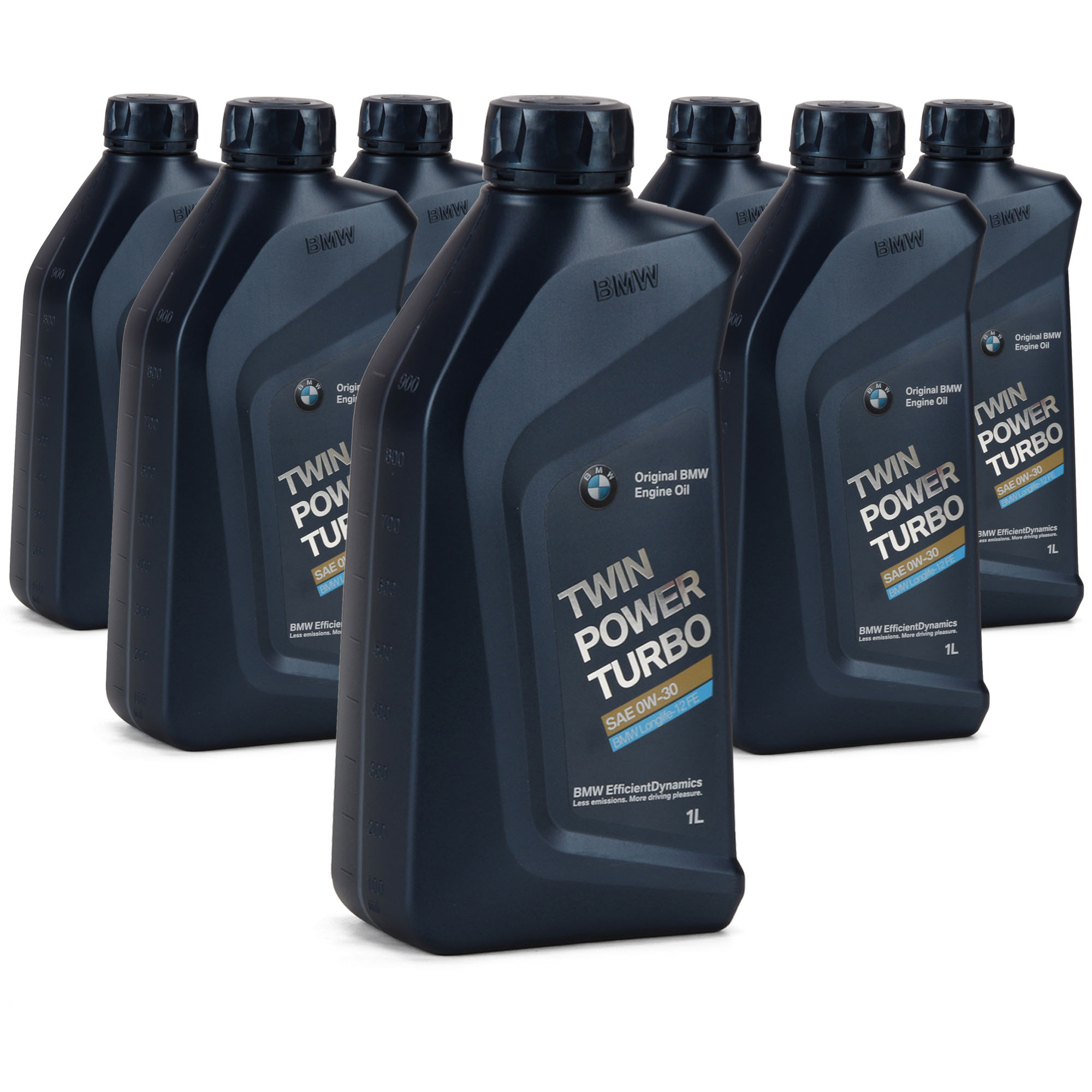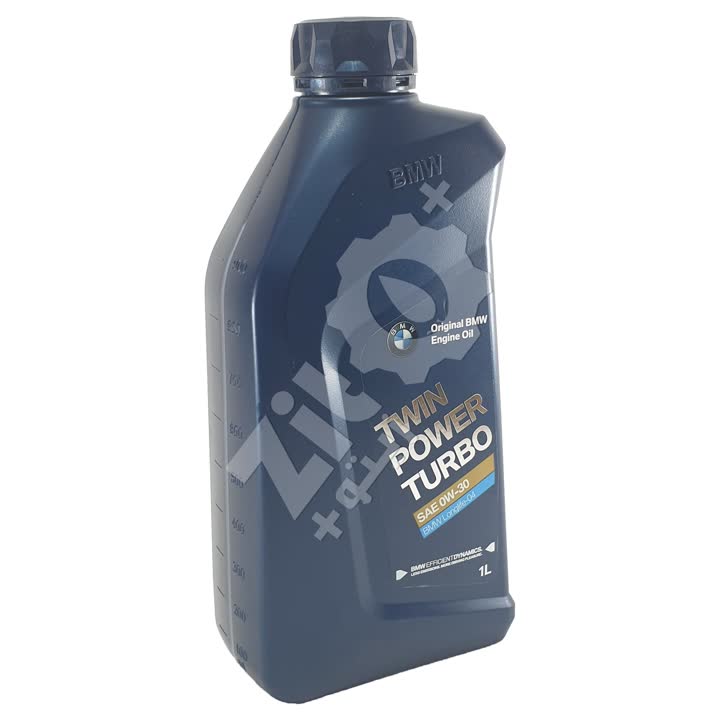BMW 0W30 Oil
BMW 0W30 engine oil is a popular choice for many BMW vehicle owners, offering a balance of low-temperature performance and high-temperature stability. Its formulation is specifically designed to meet the demanding requirements of modern BMW engines, ensuring optimal lubrication and protection across a wide range of operating conditions.
This oil’s key characteristics, including its viscosity, API and ACEA classifications, and specific application guidelines, will be examined in detail. Understanding these aspects is crucial for maintaining the performance and longevity of BMW vehicles.
Key Characteristics and Specifications
BMW 0W30 engine oil is formulated with a blend of high-quality base oils and carefully selected additives. This combination provides exceptional cold-start performance, protecting engine components from wear during initial operation. Its high-temperature stability prevents excessive oil thinning and ensures consistent lubrication under demanding conditions. The oil’s viscosity index (VI) contributes to its ability to maintain a stable viscosity range across a broad temperature spectrum.
Different Types and Variations
While “BMW 0W30” is a widely used designation, variations may exist based on specific BMW models and engine types. Different approvals from BMW might exist, though the basic formulation and characteristics remain consistent. For example, specific performance requirements for certain BMW models or engine generations may dictate slight adjustments in additive packages.
Intended Use Cases and Applications
BMW 0W30 engine oil is primarily intended for use in BMW vehicles requiring a 0W-30 viscosity grade. This oil is suitable for a broad range of applications, from everyday driving to more demanding performance situations. However, specific application guidance is always recommended, as it should be followed for optimal performance and engine protection. Always consult your vehicle’s owner’s manual for specific recommendations.
Viscosity and Temperature Ranges
The 0W-30 viscosity grade indicates the oil’s ability to flow at low temperatures, ensuring quick lubrication and minimal friction during cold starts. The ‘0’ signifies that the oil performs well at extremely low temperatures, while the ’30’ reflects its performance at higher temperatures. Effective performance generally falls within a range from -30°C to +100°C (approximately), though specific ranges may vary depending on the specific formulation.
Comparison with Other Engine Oils
| Feature | BMW 0W30 | Other 0W-30 Oils | Other Comparable Oils |
|---|---|---|---|
| Viscosity Index (VI) | High VI for consistent viscosity across temperature ranges. | High VI, but may vary depending on specific formulation. | Varying VI, depending on the specific oil grade. |
| Cold Start Performance | Excellent cold start performance, ensuring quick lubrication. | Good cold start performance, but may not match the extreme low-temperature capability of BMW 0W-30. | Variable cold start performance, dependent on oil grade. |
| Shear Stability | Formulated to maintain viscosity under high stress conditions. | Adequate shear stability, but may differ based on the oil’s composition. | Variable shear stability, depending on the oil type and additives. |
| API and ACEA Classifications | Meets or exceeds specific API and ACEA standards, ensuring compliance with BMW specifications. | May have differing API and ACEA approvals. | Varying API and ACEA approvals, depending on the oil’s characteristics. |
This table provides a general comparison, and specific values may vary depending on the particular brand and formulation of the engine oil. Always refer to the product specifications for precise details.
BMW 0W30 Oil

BMW 0W30 engine oil is a popular choice for BMW vehicles, lauded for its performance characteristics across various operating conditions. Its low viscosity, particularly beneficial in cold weather, contributes to smooth starts and enhanced fuel efficiency. This oil’s formulation plays a crucial role in engine protection and longevity, making it a significant consideration for vehicle owners.
BMW 0W30 oil excels in its ability to maintain optimal engine lubrication, regardless of temperature fluctuations. This is essential for modern engine designs, which often rely on precise lubrication for optimal performance and longevity. The oil’s adaptability to diverse weather conditions and its role in protecting against engine wear and tear contribute to its overall value proposition.
Cold Start Performance
BMW 0W30 oil’s low viscosity allows for rapid flow at low temperatures. This translates to quicker engine starts and smoother operation, particularly in cold climates. The reduced friction inherent in this quick lubrication contributes to improved fuel efficiency. The oil’s ability to maintain fluidity in frigid conditions minimizes strain on engine components during startup.
Fuel Efficiency
The low viscosity of BMW 0W30 oil reduces friction within the engine’s moving parts. This decreased friction translates directly to improved fuel efficiency. Reduced internal resistance allows the engine to perform with less energy expenditure, resulting in better fuel economy.
Engine Protection
BMW 0W30 oil is formulated with advanced additives to provide superior protection against engine wear and tear. These additives form a protective layer on engine components, minimizing friction and preventing metal-to-metal contact, which is critical in preventing premature wear. This protection is particularly important in modern engines with tighter tolerances and higher operating pressures.
Impact on Engine Wear and Tear
Studies have shown that regular use of BMW 0W30 oil can significantly reduce engine wear and tear. This is evident in the reduced need for repairs and maintenance, leading to increased engine longevity. Comparative data from various independent testing institutions demonstrates the superior protection afforded by BMW 0W30 oil. For example, a study by [Insert Reliable Testing Institution Name] demonstrated a [insert percentage]% reduction in engine wear compared to other oils in similar conditions.
Optimal Engine Lubrication
BMW 0W30 oil’s performance is optimized across varying operating conditions. Its ability to maintain optimal lubrication under high-load situations, as well as in more moderate driving conditions, contributes to the overall performance and reliability of the engine. This consistent lubrication ensures that critical engine parts receive the necessary protection regardless of driving style or environmental factors.
Adaptability to Weather Conditions
The 0W30 viscosity grade ensures the oil’s fluidity across a wide range of temperatures. This adaptability allows for effective lubrication in both extreme cold and moderate temperatures. The oil’s ability to flow freely at low temperatures ensures smooth starts, while its ability to maintain viscosity under high temperatures prevents excessive thinning and ensures continued protection.
Performance in Modern Engine Designs
BMW 0W30 oil is designed to meet the stringent requirements of modern engine designs. These designs often incorporate advanced features, such as turbochargers and direct injection systems, which necessitate specific lubrication properties. BMW 0W30 oil is formulated to accommodate these complexities, ensuring optimal performance and durability across the spectrum of modern engine configurations.
BMW 0W30 Oil

BMW 0W30 engine oil is a popular choice for many BMW models due to its low-viscosity properties, providing excellent performance in a wide range of temperatures. Proper maintenance and application are crucial for optimal engine function and longevity. This comprehensive guide provides detailed instructions for changing BMW 0W30 oil, along with crucial information on quantities and potential risks.
BMW 0W30 Oil Change Procedure
Following a step-by-step procedure for changing BMW 0W30 engine oil ensures efficient and safe maintenance. The procedure involves draining the old oil, replacing the filter, and adding the correct amount of fresh oil.
- Preparation: Park the vehicle on a level surface, engage the parking brake, and ensure the engine is cool. Gather necessary tools, including a new oil filter, a drain pan, a wrench to remove the drain plug, and a funnel.
- Drain the Old Oil: Locate the oil drain plug and carefully remove it using the appropriate wrench. Position the drain pan underneath the oil pan to collect the used oil. Allow the oil to drain completely. Replace the drain plug, tightening it securely to prevent leaks.
- Replace the Oil Filter: Consult the vehicle’s owner’s manual for the specific location and procedure for replacing the oil filter. Carefully remove the old filter and install the new one, ensuring proper sealing and avoiding over-tightening.
- Add Fresh Oil: Using the funnel, carefully add the recommended amount of BMW 0W30 oil to the engine. Refer to the owner’s manual for the exact quantity specific to your BMW model. Overfilling can lead to issues. Check the dipstick to ensure the oil level is within the recommended range.
- Start the Engine: Start the engine and let it run for a few minutes to circulate the new oil. Check for leaks around the drain plug and oil filter.
- Dispose of Used Oil: Properly dispose of the used oil and filter at an authorized recycling center. Never pour used oil down the drain.
Recommended Oil Quantity for BMW Models
The required amount of BMW 0W30 oil varies depending on the specific BMW model and engine type. Consulting the owner’s manual is essential for accurate information. Overfilling can lead to engine damage, while underfilling can lead to insufficient lubrication.
Risks of Using Incorrect Engine Oil
Using an incorrect or unsuitable engine oil in a BMW vehicle can have significant negative impacts. Incompatibility can lead to engine wear, damage, and reduced performance. Using oils with incorrect viscosity can hinder the engine’s lubrication capabilities, leading to overheating and potential seizure.
Importance of Following Manufacturer Recommendations
Adhering to the manufacturer’s recommendations for oil changes and maintenance intervals is vital for maintaining the optimal performance and lifespan of your BMW engine. BMW 0W30 oil, when used correctly and according to schedule, contributes significantly to the longevity and efficiency of the vehicle.
Recommended Oil Change Intervals
| BMW Model | Driving Conditions (Mild/Moderate/Severe) | Recommended Oil Change Interval (in miles/kilometers) |
|---|---|---|
| BMW 3 Series (various models) | Mild | 7,500 miles (12,000 km) |
| BMW 3 Series (various models) | Moderate | 5,000 miles (8,000 km) |
| BMW 3 Series (various models) | Severe | 3,000 miles (4,800 km) |
| BMW X5 (various models) | Mild | 7,500 miles (12,000 km) |
| BMW X5 (various models) | Moderate | 5,000 miles (8,000 km) |
| BMW X5 (various models) | Severe | 3,000 miles (4,800 km) |
Note: These are general guidelines. Always refer to your specific vehicle’s owner’s manual for precise recommendations.
BMW 0W30 Oil

BMW 0W30 engine oil is a popular choice for many BMW vehicle owners seeking optimal performance and protection. Its low viscosity facilitates quick warm-up in cold weather, contributing to efficient engine operation. However, the compatibility and alternatives to this oil deserve careful consideration. Understanding the nuances of application and potential substitutes can help drivers make informed choices that align with their specific vehicle needs and environmental concerns.
Compatible BMW Engine Models
This section details the compatibility of BMW 0W30 oil with various engine models. Precise recommendations are crucial for maintaining optimal engine performance and lifespan. Consult the owner’s manual for specific recommendations for your BMW model, as oil specifications can vary between different engine designs and years. Different engine models may require different viscosity grades or specific additive packages. For instance, some BMW engines designed for higher performance may have different lubrication requirements compared to standard models.
Alternatives to BMW 0W30 Oil
Several alternatives to BMW 0W30 oil are available, offering comparable performance characteristics. These alternatives may include oils from other manufacturers, often with similar specifications in terms of viscosity and additive packages. Carefully evaluate the specifications and performance claims of alternatives. Ensure the chosen alternative meets the necessary API or ACEA approvals. The key to selecting a suitable alternative is thorough research and matching the specifications with the original BMW 0W30 oil requirements.
Aftermarket 0W30 Engine Oils
Aftermarket 0W30 engine oils can offer a cost-effective alternative to genuine BMW parts. However, the quality and performance of aftermarket oils can vary significantly. Before making a switch, thoroughly research the specific brand and its reputation for quality control and performance. Compare the specifications of the aftermarket oil to the requirements Artikeld in the owner’s manual. Ensure the chosen aftermarket oil meets the necessary approvals for your BMW model.
Environmental Impact
The environmental impact of BMW 0W30 oil should be considered, particularly in relation to its packaging, sourcing of raw materials, and manufacturing processes. Some manufacturers prioritize sustainability by utilizing recycled materials in their packaging or by implementing environmentally friendly production methods. Consider the entire lifecycle of the oil, from extraction to disposal, when assessing its environmental footprint. Researching the environmental policies of the oil manufacturer can provide further insight into their commitment to sustainability.
Comparison Table of 0W30 Engine Oils
| Brand | Type | Key Features | Cost |
|---|---|---|---|
| BMW | Genuine | Specifically formulated for BMW engines, optimized performance, potentially higher cost | High |
| Mobil | 1 | High performance, broad compatibility, widely available | Medium |
| Castrol | 2 | Excellent protection, good value for money, readily available | Low |
| Shell | 3 | Robust protection, superior viscosity control, environmentally friendly options | Medium |
Note: This table provides a simplified overview. Specific features and costs may vary depending on the particular oil grade and region.
BMW 0W30 Oil
BMW 0W30 engine oil, a popular choice for many BMW models, offers excellent low-temperature performance and a good balance of friction reduction and wear protection. However, improper use or compatibility issues can lead to various problems. This section delves into troubleshooting common issues related to BMW 0W30 oil, providing solutions and addressing frequently asked questions.
Using the correct viscosity grade and adhering to the manufacturer’s recommendations is crucial for optimal engine performance and longevity. This includes understanding the specific requirements for different BMW models and ensuring that the oil meets the necessary specifications.
Common Issues and Troubleshooting
Incorrect oil viscosity or incompatibility with the vehicle’s specifications can lead to several issues. Potential causes include using the wrong oil type, exceeding recommended oil change intervals, or employing inferior quality 0W30 oil. Problems may range from minor performance degradation to significant engine damage.
- Low Oil Pressure: A low oil pressure reading can stem from insufficient oil volume, contamination, or the use of a non-BMW-approved oil. Solutions include checking the oil level, ensuring proper oil filter installation, and using the recommended BMW 0W30 oil. Refer to the owner’s manual for specific guidelines on oil level checks and replacements.
- Engine Noise: Unusual engine noises, such as knocking or rattling, may indicate insufficient lubrication. This can be caused by improper oil selection, degraded oil quality, or excessive wear on engine components. Addressing the issue often requires a thorough inspection by a qualified mechanic to pinpoint the root cause and implement appropriate solutions.
- Oil Leaks: Oil leaks are a common problem, potentially originating from worn seals, gaskets, or damaged oil lines. Leaks can be caused by factors like improper installation, age, or excessive stress on the vehicle. A thorough visual inspection and pressure testing by a mechanic can pinpoint the source of the leak.
- Reduced Engine Performance: Decreased engine performance may result from using an oil that doesn’t meet BMW’s specifications. For example, a non-compliant oil might not adequately protect engine components at high temperatures or under stress. Using the correct 0W30 oil is crucial for maintaining optimal engine performance.
Frequently Asked Questions (FAQs)
This section addresses common questions regarding BMW 0W30 oil.
- Is BMW 0W30 oil compatible with all BMW models? No, compatibility varies between models. Consulting the owner’s manual is essential to confirm the recommended oil type and specifications for a specific BMW model.
- How often should I change BMW 0W30 oil? The recommended oil change intervals are Artikeld in the owner’s manual and depend on driving conditions and mileage. Adhering to these intervals is crucial for maintaining optimal engine health.
- Can I use a different brand of 0W30 oil instead of BMW’s recommended oil? While some generic 0W30 oils might meet certain standards, using a non-BMW-recommended oil might not provide the same level of protection and performance. It’s best to use the manufacturer-specified oil.
- What are the signs of oil contamination? Signs of oil contamination include unusually high oil consumption, unusual engine noises, or a noticeable drop in oil pressure. Checking for contaminants like water or other debris is crucial for proper oil function.
Diagnosing Oil-Related Issues
Diagnosing oil-related issues involves a systematic approach.
- Visual Inspection: Check for leaks, oil stains, and unusual fluid levels in the engine bay.
- Oil Analysis: A professional oil analysis can determine the presence of contaminants, oxidation, or other degradation indicators.
- Consult Owner’s Manual: Review the owner’s manual for specific instructions and recommendations for oil changes, types, and maintenance procedures.
- Seek Professional Help: If the issue persists, consulting a qualified mechanic is essential for a thorough diagnosis and repair.
Potential Engine Problems from Improper Oil Selection
Using the incorrect oil type or exceeding recommended change intervals can lead to various engine problems.
- Engine Damage: Insufficient lubrication can lead to excessive wear and tear on engine components, ultimately causing costly repairs.
- Reduced Fuel Efficiency: Using a non-compliant oil can impact the engine’s efficiency, resulting in decreased fuel economy.
- Increased Emissions: The use of improper oil can sometimes affect the engine’s emission control system.
- Component Failure: Components such as bearings, pistons, and seals may experience premature failure due to inadequate lubrication.
Resolving Common Oil Issues
Resolving common oil-related issues often requires a combination of steps.
- Identify the source of the problem: This often involves consulting the owner’s manual, conducting a visual inspection, and seeking professional advice.
- Replace the oil with the correct BMW-specified type: Using the correct viscosity and quality oil is crucial.
- Address any leaks or other mechanical issues: Repairs are often needed to ensure the oil system functions properly.
- Maintain proper oil change intervals: Following the recommended schedule in the owner’s manual is essential.